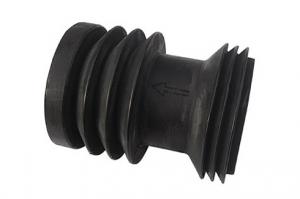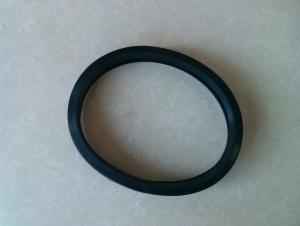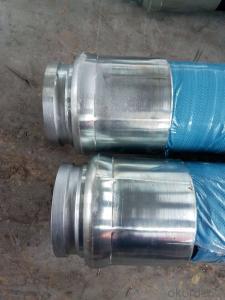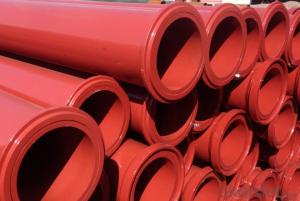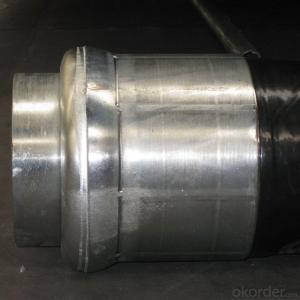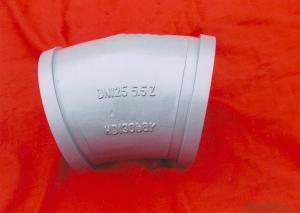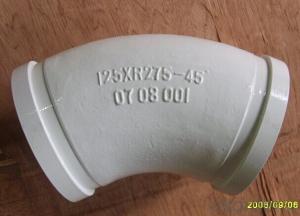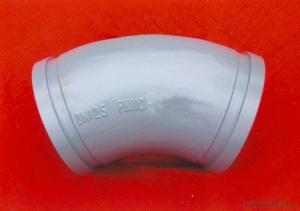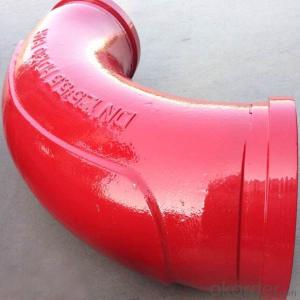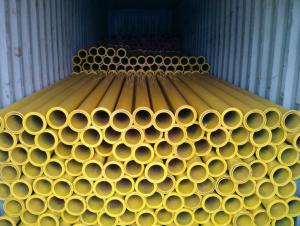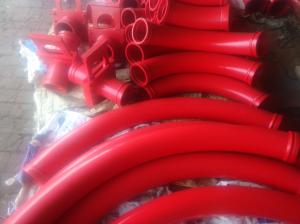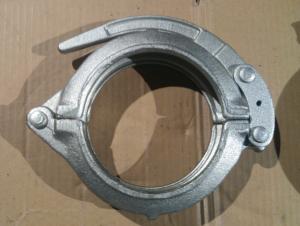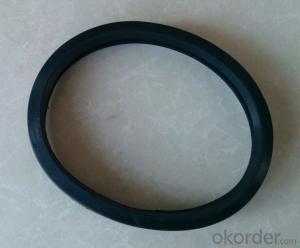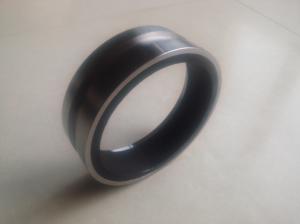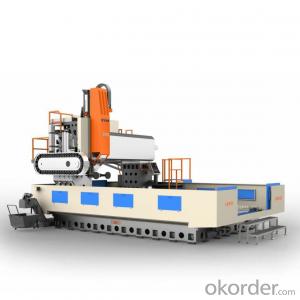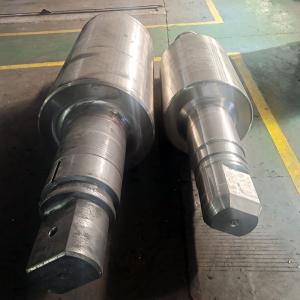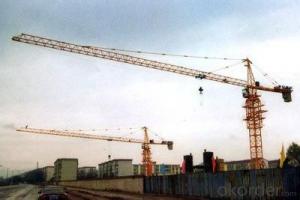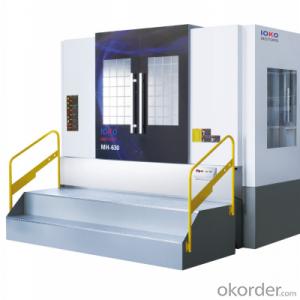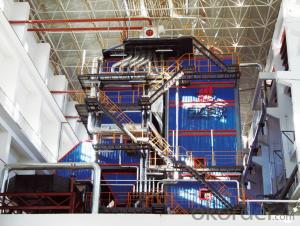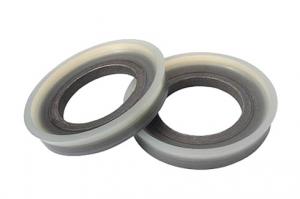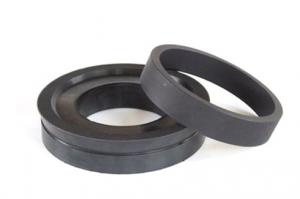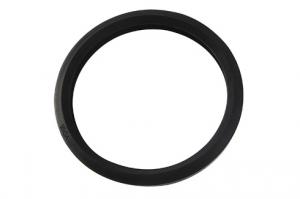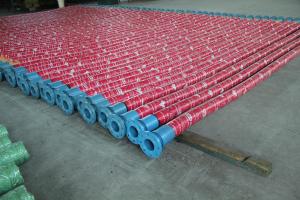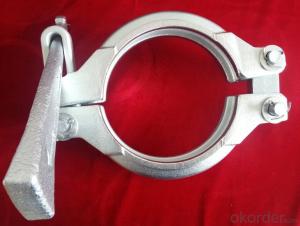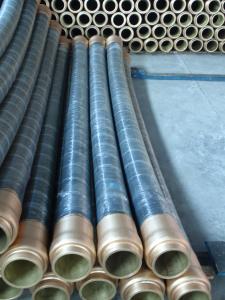Concrete Pump Parts Cleaning Rubber Piston
- Loading Port:
- China Main Port
- Payment Terms:
- TT OR LC
- Min Order Qty:
- -
- Supply Capability:
- -
OKorder Service Pledge
OKorder Financial Service
You Might Also Like
Including: 1) Wear-resisting Board andCutting ink for Schwing, Putzmeister, Sany, Zoomlion, Kyokuto
2) Seal Ring/ Gasket for Schwing, Putzmeister, Sany
3) Schwing Kidney 10029138
4) Pipe Clean-out Accessories: Sponge ball, Sponge Column, Cleaningpiston
5) Conveying Cylinder for Schwing, Putzmeister
Products:
1) Rubber hose
2) Putzmeister/ Schwing/ Zoomlion/ SermacRam Pistons
3) Putzmeister/ IHI/ Kyokuto/ Zoomlion/Sany Seperated Piston
4) Wear-resisting board and Cuts ink
5) Coupling and seal ring for Putzmeister,Schwing, Sany
6) ST52 steel pipe, elbow, reducer
7) Cleaning seriesand others- Q:How can a faulty hydraulic filter affect the pump's hydraulic system?
- A faulty hydraulic filter can have several negative effects on a pump's hydraulic system. The primary purpose of a hydraulic filter is to remove contaminants such as dirt, debris, and other particles from the hydraulic fluid, ensuring the fluid is clean and free from impurities. When the filter is faulty or clogged, it fails to effectively filter the fluid, leading to various problems. Firstly, the presence of contaminants in the hydraulic fluid can lead to increased wear and tear on the pump's components. The particles can cause abrasion and damage to the pump's moving parts, including the pistons, valves, and seals. This can result in decreased efficiency and performance of the pump, as well as potential leaks or failures. Secondly, a faulty hydraulic filter can cause a decrease in overall system pressure. As the contaminants accumulate in the fluid, they can restrict the flow of hydraulic fluid, leading to increased resistance within the system. This, in turn, can cause a drop in pressure, resulting in reduced hydraulic power and slower operation of the pump. Furthermore, a clogged filter can also lead to increased heat generation within the hydraulic system. The presence of contaminants restricts the fluid flow, causing the pump to work harder and generate more heat. This can lead to overheating of the hydraulic fluid, which can further damage the pump and other components of the system. Overheating can also cause the hydraulic fluid to degrade, reducing its lubricating properties and potentially leading to further wear and damage. In summary, a faulty hydraulic filter can affect the pump's hydraulic system by causing increased wear and tear on components, decreased system pressure, slower operation, increased heat generation, and potential fluid degradation. Regular maintenance, including timely replacement of hydraulic filters, is essential to ensure the efficient and reliable functioning of a pump's hydraulic system.
- Q:Can concrete pump spare parts be tested for compatibility with different types of concrete mixes?
- Yes, concrete pump spare parts can be tested for compatibility with different types of concrete mixes. These tests typically involve evaluating the performance, durability, and efficiency of the spare parts when used with various concrete compositions. This ensures that the spare parts can handle the specific requirements and characteristics of different concrete mixes effectively.
- Q:Can concrete pump spare parts be tested for performance and quality before installation?
- It is imperative to test concrete pump spare parts for performance and quality before installation. This ensures that they conform to necessary standards and specifications, and aids in detecting any flaws or concerns that might impact their performance or longevity. Testing can be carried out through diverse methods, including physical inspections, functional assessments, or deploying specialized equipment to gauge specific parameters. By conducting pre-installation tests on these spare parts, potential issues can be identified and rectified at an early stage, thereby guaranteeing peak performance and quality.
- Q:How long does it take to receive concrete pump spare parts after ordering?
- The time it takes to receive concrete pump spare parts after ordering can vary depending on several factors. It is important to note that the availability of the specific spare parts you need and the location of the supplier can significantly impact the delivery time. In general, if the spare parts are readily available and in stock, you can expect to receive them within a few days to a week. This assumes that the supplier has a streamlined order processing system and prompt shipping arrangements. However, if the spare parts are not in stock, it may take longer to receive them. In such cases, the supplier may need to order the parts from a manufacturer or source them from a distributor. This could add additional lead time to the delivery process, ranging from a few weeks to several months, depending on the availability and sourcing process. It is advisable to check with the supplier or manufacturer before placing the order to get an estimate of the delivery time. Factors like the supplier's location, transportation mode, and any potential customs or logistics delays should also be taken into consideration. To expedite the delivery process, some suppliers may offer expedited shipping options at an additional cost. This can be beneficial if you need the spare parts urgently. Overall, the time it takes to receive concrete pump spare parts after ordering can vary, but being proactive, communicating with the supplier, and planning ahead can help ensure a smoother and quicker delivery process.
- Q:Can concrete pump spare parts be replaced individually, or should they be replaced as a set?
- Concrete pump spare parts can be replaced individually, as there is no requirement to replace them as a set. This allows for more cost-effective and efficient maintenance, as only the specific part that needs replacement can be addressed.
- Q:How often should hydraulic accumulator bladders be inspected or replaced in a concrete pump?
- Regular inspections of hydraulic accumulator bladders in a concrete pump are essential to ensure their good condition and proper functioning. Ideally, these inspections should be conducted on a monthly basis. However, the frequency of inspection may vary depending on the specific operating conditions of the concrete pump. During the inspection, it is important to carefully examine the bladders for any signs of wear, damage, or leakage. If any of these issues are detected, immediate replacement of the bladders is recommended. This will prevent further damage to the hydraulic system and maintain the overall efficiency and safety of the concrete pump. In addition to regular inspections, it is crucial to adhere to the manufacturer's guidelines regarding the replacement interval for hydraulic accumulator bladders. The manufacturer usually specifies this interval, taking into account factors such as the type of accumulator and the working conditions of the concrete pump. Ultimately, the objective is to ensure that the hydraulic accumulator bladders are in optimal condition to uphold the performance and reliability of the concrete pump. Therefore, conducting regular inspections and promptly replacing bladders are vital for the safe and efficient operation of the concrete pump.
- Q:How can one identify the correct type of rubber seals or gaskets for concrete pump spare parts?
- To identify the correct type of rubber seals or gaskets for concrete pump spare parts, one should consider several factors. Firstly, it is important to know the specific model and make of the concrete pump to ensure compatibility. Additionally, one should evaluate the application requirements, such as the pressure and temperature conditions the seals or gaskets will be exposed to. Considering the material compatibility with the fluids or chemicals being pumped is also crucial. Consulting the manufacturer's specifications or seeking expert advice can provide further guidance in identifying the correct type of rubber seals or gaskets for concrete pump spare parts.
- Q:Are there any warranties or guarantees on concrete pump spare parts?
- Yes, there are warranties and guarantees available on concrete pump spare parts. Many reputable manufacturers and suppliers offer warranties to ensure the quality and performance of their products. These warranties typically cover defects in materials or workmanship and provide replacements or repairs within a specified time frame. It is important to check the terms and conditions of the warranty or guarantee provided by the specific supplier or manufacturer before purchasing concrete pump spare parts.
- Q:How often should concrete pump hydraulic filters be inspected and replaced?
- Concrete pump hydraulic filters should be inspected and replaced on a regular basis, ideally every 500 hours of operation or according to the manufacturer's recommendations. Regular inspection and replacement of hydraulic filters help ensure the proper functioning and longevity of the concrete pump.
- Q:What is the function of a concrete pump remote control antenna?
- The function of a concrete pump remote control antenna is to establish a wireless connection between the remote control device and the concrete pump. This allows the operator to remotely control the various functions of the concrete pump, such as starting and stopping the pump, adjusting the speed and flow of the concrete, and controlling the boom movements. The antenna receives signals from the remote control device and transmits them to the concrete pump, enabling the operator to control the pump from a safe distance. This helps improve efficiency, accuracy, and safety on construction sites by allowing the operator to have better visibility of the pump and its surroundings while still maintaining full control over its operations.
1. Manufacturer Overview |
|
|---|---|
| Location | |
| Year Established | |
| Annual Output Value | |
| Main Markets | |
| Company Certifications | |
2. Manufacturer Certificates |
|
|---|---|
| a) Certification Name | |
| Range | |
| Reference | |
| Validity Period | |
3. Manufacturer Capability |
|
|---|---|
| a)Trade Capacity | |
| Nearest Port | |
| Export Percentage | |
| No.of Employees in Trade Department | |
| Language Spoken: | |
| b)Factory Information | |
| Factory Size: | |
| No. of Production Lines | |
| Contract Manufacturing | |
| Product Price Range | |
Send your message to us
Concrete Pump Parts Cleaning Rubber Piston
- Loading Port:
- China Main Port
- Payment Terms:
- TT OR LC
- Min Order Qty:
- -
- Supply Capability:
- -
OKorder Service Pledge
OKorder Financial Service
Similar products
New products
Hot products
Related keywords
